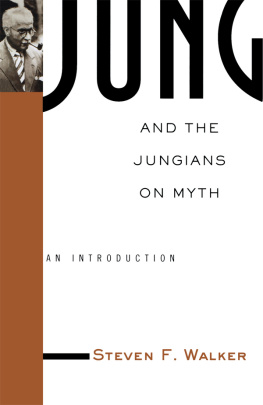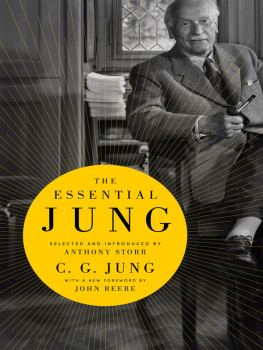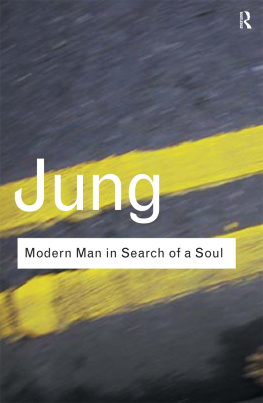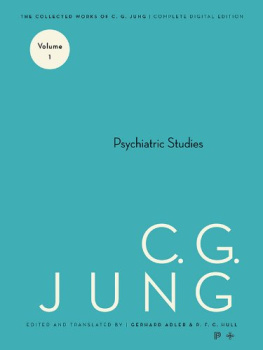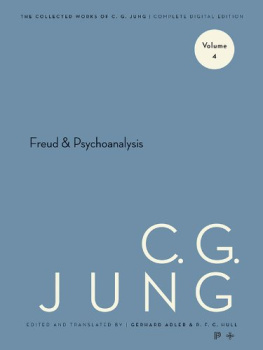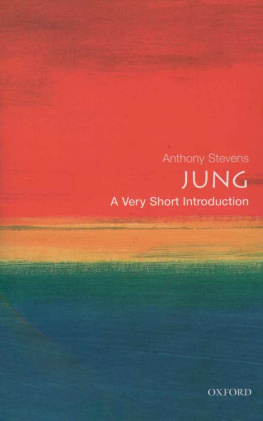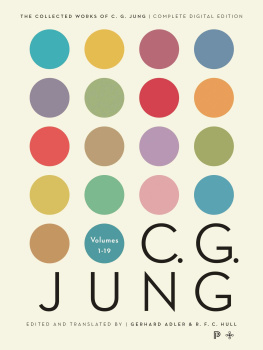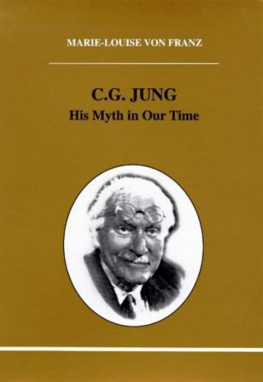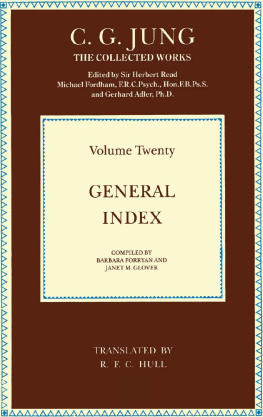Walker Steven - Jung and the Jungians on Myth: An Introduction
Here you can read online Walker Steven - Jung and the Jungians on Myth: An Introduction full text of the book (entire story) in english for free. Download pdf and epub, get meaning, cover and reviews about this ebook. year: 2002, publisher: Taylor and Francis, genre: Science. Description of the work, (preface) as well as reviews are available. Best literature library LitArk.com created for fans of good reading and offers a wide selection of genres:
Romance novel
Science fiction
Adventure
Detective
Science
History
Home and family
Prose
Art
Politics
Computer
Non-fiction
Religion
Business
Children
Humor
Choose a favorite category and find really read worthwhile books. Enjoy immersion in the world of imagination, feel the emotions of the characters or learn something new for yourself, make an fascinating discovery.
- Book:Jung and the Jungians on Myth: An Introduction
- Author:
- Publisher:Taylor and Francis
- Genre:
- Year:2002
- Rating:3 / 5
- Favourites:Add to favourites
- Your mark:
- 60
- 1
- 2
- 3
- 4
- 5
Jung and the Jungians on Myth: An Introduction: summary, description and annotation
We offer to read an annotation, description, summary or preface (depends on what the author of the book "Jung and the Jungians on Myth: An Introduction" wrote himself). If you haven't found the necessary information about the book — write in the comments, we will try to find it.
Jung and the Jungians on Myth: An Introduction — read online for free the complete book (whole text) full work
Below is the text of the book, divided by pages. System saving the place of the last page read, allows you to conveniently read the book "Jung and the Jungians on Myth: An Introduction" online for free, without having to search again every time where you left off. Put a bookmark, and you can go to the page where you finished reading at any time.
Font size:
Interval:
Bookmark:
THE JUNGIANS
ON MYTH
THEORISTS OF MYTH
ROBERT A . SEGAL, SERIES EDITOR
JUNG AND THE JUNGIANS ON MYTH
An Introduction
by Steven F. Walker
POLITICAL MYTH
A Theoretical Introduction
by Christopher Flood
REN GIRARD AND MYTH
An Introduction
by Richard J. Golsan
THE POETICS OF MYTH
by Eleazar M. Meletinsky
translated by Guy Lanoue
and Alexandre Sadetsky
THE POETICS OF MYTH
by Eleazar M. Meletinsky
translated by Guy Lanoue and Alexandre Sadetsky
NORTHROP FRYE ON MYTH
An Introduction
by Ford Russell
CASSIER AND LANGER ON MYTH
An Introduction
by William Schultz
FORTHCOMING IN PAPERBACK:
MYTH AND RELIGION IN MIRCEA ELIADE
by Douglas Allen
THE MYTH AND RITUAL SCHOOL
J. G. Frazier and the Cambridge Ritualists
by Robert Ackerman
THE JUNGIANS
ON MYTH
Steven F. Walker

First published 2002 by Routledge
Published 2013 by Routledge
2 Park Square, Milton Park, Abingdon, Oxon OX14 4RN
711 Third Avenue, New York, NY 10017, USA
Routledge is an imprint of the Taylor & Francis Group, an informa business
Copyright 2001, 2002 by Routledge
All rights reserved. No part of this book may be reprinted or reproduced or utilized in any form or by any electronic, mechanical, or other means, now known or hereafter invented, including photocopying and recording or in any information storage or retrieval system, without permission in writing from the publishers.
Cataloging-in-Publication Data available from the Library of Congress
ISBN: 978-0-415-93631-3
ISBN: 978-0-415-93631-6 (pbk)
For Swami Sarvagatananda
Theories of myth are always derivative. They are theories of something underlyingfor example, society, culture, literature, and the mindof which myth is a manifestation. Some theorists of the underlying domain themselves apply their theories to myth. Others leave the application to disciples. While Sigmund Freud, for instance, briefly analyzes the myth of Oedipus in his Interpretation of Dreams, the pioneering psychoanalytic interpretation of myth was left largely to followers like Karl Abraham, Otto Rank, and Geza Roheim. By contrast, Carl Jung did much of his own pioneering application, and his writings brim with invocations of myths worldwide.
While, then, no introduction to Jung's psychology can avoid the topic of myth, Steven F. Walker's book is distinctive because it focuses on myth. Writing as a sympathetic yet not uncritical devotee, Walker presents the Jungian view of both the origin and the function of myth, and he considers the function of myth for not only the individual but also society. In both cases, the chief function is compensatory: myth serves to raise to consciousness heretofore untended aspects of the societal and individual personality and thereby to promote balance or wholeness. The achievement of that aim requires a middle ground between wholesale identification with myth and outright rejection of it. Walker spells out the fateful consequences of overidentification for society and the individual alike.
Walker's book is distinctive not only in its concentration on myth but also in its extensive reliance on Jung's letters and seminar notes rather than on the Collected Works alone. He relies as well on Jung's autobiography, Memories, Dreams, Reflections, since he wishes to connect Jungian theory to Jung's internal lifehis dreams and visionsas well as to his external lifehis contacts, his relationships, his analysands, his studies, and his travels. Walker also ties Jung's views to cultural and political events of the time.
The author carefully disentangles various concepts that Jungians themselves sometimes blur. Instinct gets distinguished from archetype, archetype gets distinguished from archetypal image, and image gets distinguished from symbol. Walker explicates such commonly bandied terms as constellation, projection, inflation, and individuation. He explains the differences between myth on the one hand and dream and fantasy on the other. He gives special attention to Jung's particular fascination with alchemy, though not, it might be noted, to his almost equal fascination with Gnosticism.
Attention is also given to the work of Jung's disciples and successors, especially the work of Erich Neumann, who was particularly concerned with myths of the Great Mother archetype, and of Marie-Louise von Franz, who has been especially interested in fairy tales as expressions of the self archetype. Walker details the contemporary Jungian emphasis on the mythological nature of ordinary, daily experience and not just of extraordinary, ;peak experience. At the same time he describes the spur by the New Age movement, by feminism, and by the men's movement toward the quest for divinity within human beingsa quest which for traditional Jungian psychology would veer on inflation. Finally, Walker outlines the radical, archetypal psychology of James Hillman and David Miller, with its stress on Greco-Roman polytheism rather than on biblical monotheism.
Drawing frequently on Western myths of various kinds to illustrate his insights, Walker, whose professional field is comparative literature, provides a lucid, comprehensive, and exciting overview of the emergence and development of the Jungian approach to mythology.
Robert A. Segal
This book constitutes a concise and sympathetic presentation of Carl Gustav Jung and of some of his outstanding followers as theoreticians of myth. C.G. Jung was never more insightful and intriguing and at the same time more baffling and outrageous than when he discussed mythology. The remarks he made concerning it in the course of his long life (1875-1961) resist facile summary and reduction. The reader encountering for the first time Jungian ideas concerning myths and their unsuspected presence in modern psychology and culture may need to work at keeping an open mind and to accept provisionally a number of hypotheses that seem to run counter to common sense, especially Jung's theory of the collective unconscious as the wellspring of the imagery of mythology. Yet the reader who perseveres in the quest will discover that Jung and his followers open up theoretical perspectives that provide further new insights into the psychological significance of mythology.
To set out on this quest for meaning requires, however, that the student of mythology understand beforehand a fair amount of Jungian psychology"analytical psychology, as it is commonly designated by Jungians. Thus a large portion of this book will be taken up with a systematic presentation of what the reader needs to know in order to begin to make use of Jungian ideas in the study of mythological texts. The work of pioneering thinkers has often suffered from well-meaning attempts to simplify the complexities of their thought. Narrow reductionism and the uncritical glossing over of difficulties have been the frequent result. I hope that my own attempt at clear exposition and systematic elaboration will not lead to a misleading simplification of Jungian ideas but rather will serve to encourage the reader to deal more actively and critically with the theoretical bases of Jungian thought.
Since Jung discusses myth haphazardly and unsystematically for the most part, the second service this book will perform for its readers will be to present a short account of Jung's theoretical approaches to the study of mythology, along with suggestions on how to apply these theoretical perspectives to myths and to cultural texts in which myths are present and play a major role. My own training in comparative literature no doubt leads me to favor the application of Jungian theory to myths taken primarily as narrative texts, but I hope to highlight at least some of the potential interest that Jungian perspectives on mythology can have for other fields such as anthropology, art, folklore, history, political science, and religion.
Font size:
Interval:
Bookmark:
Similar books «Jung and the Jungians on Myth: An Introduction»
Look at similar books to Jung and the Jungians on Myth: An Introduction. We have selected literature similar in name and meaning in the hope of providing readers with more options to find new, interesting, not yet read works.
Discussion, reviews of the book Jung and the Jungians on Myth: An Introduction and just readers' own opinions. Leave your comments, write what you think about the work, its meaning or the main characters. Specify what exactly you liked and what you didn't like, and why you think so.

